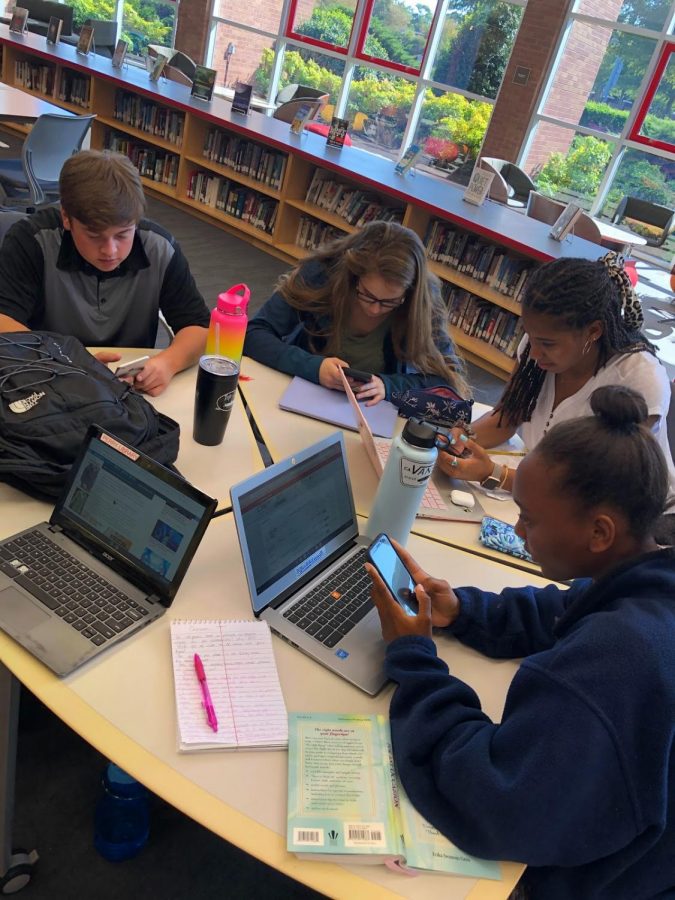Cell Phones: Helpful or Harmful?
An up-close view of cell phone usage in school
While walking the hallways and entering the classrooms of Cape Henry Collegiate, you will see a common theme: cell phones glued to the sides and hands of students and teachers. Now, many may say to get rid of the phones at school altogether; however, we have to understand that cellphones and social media are here to stay, so we need to help kids use them both responsibility. Mr. Horgan, the Head of the Upper School, believes if [they] are used for good, cell phones can be a very helpful tool to have around, with keeping up with scheduling, homework, or just to listen to some music while you’re studying. Cape Henry Collegiate allows phones within classrooms and the hallways because – as a community – there is an understanding of when and when not to use them.
After asking students around school about the usage of cell phones, it was evident that most kids like their phones but could survive without them. Payton Snead (’21) said that she could go without her phone because she has gone “a while without her phone, and it was fine.” The common theme of not having your phone, for students at Cape Henry, she believes, “is having FOMO.” FOMO is a newer term that stands for “fear of missing out.” This “fear” is caused by social media, and everyone posting about their “perfect” lives, and whatever they happen to be doing at the moment. The feeling occurs when someone doesn’t get invited or they feel they are just missing out.
However, social media is controlled by the owner, and it is their decision to use their phones and apps how they choose. Josh Mickens (’20) said, “People can use their phones for good, but I do agree that it can 100% become a weapon, in and outside of school.” In the hands of teenagers, cell phones often become these weapons. While Josh and Payton were asked if having a cell phone and using social media can create social pressure or anxiety, they both answered yes. Josh believed that if he was already “feeling pressured aside from being offline, having the phone can just make things worse.” Similarly, Payton felt that “there is a certain standard for social media: best picture, best filter, and most likes. It can really create a lot of pressure for kids who are still learning and growing. However, it can be really fun to see what cool things others are doing, to edit pictures and to just create your own designs.”
Your phone can be a positive part of your life, but mainly phones are just, as Mr. Horgan stated, “the empty calories of your intellectual lives.” In all honesty, “the world would be a better place without cell phones, kids would be more likely to interact with each other than not,” as Mr. Fluharty, Director of Nexus Studies stated. Mr. Fluharty does agree that they do help us, GPS and communication – that’s about it. The other “stuff” doesn’t matter as much, but phones truly are not going anywhere. As a community at Cape Henry, we need to figure out a way to teach and model a positive way of using cell phones for their intended uses in and outside of school.

